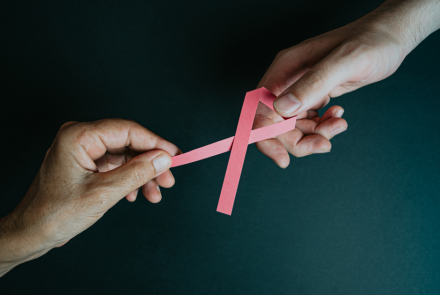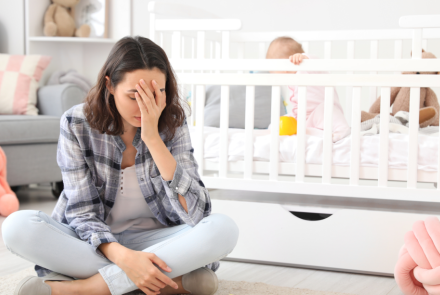Medication and therapy can help new moms suffering from depression after giving birth.
Many women have what’s known as the “baby blues” in the days after they give birth. This isn’t the same as postpartum depression, which is more severe and may require treatment by a health care professional, says Maria Emerson, M.D., F.A.C.O.G., Director of Obstetrics and Gynecology at Montefiore Nyack Hospital and a gynecologist with OBS-GYN of Rockland in New City and Stony Point.
“If you have postpartum depression, you are not alone in this experience,” Dr. Emerson said. “Many women have gone through this and many more will in the future. Effective treatment is available and can help you and your baby be as healthy as possible.”
“Baby Blues” vs. Postpartum Depression
Baby blues usually happen shortly after birth. A mother with baby blues feels sadness, anxiety and possibly some anger with the new baby, partner or other children. “You may cry for no obvious reason, lose your appetite and have trouble sleeping or making choices. You may question whether you can handle caring for your baby,” Dr. Emerson said. Baby blues symptoms generally last only one to two weeks and do not require medication.
Postpartum depression is more severe. It affects your ability to perform your activities of daily living, which involve taking care of yourself, your baby and/or your family. It may involve feelings of being hopeless or worthless and thoughts of hurting yourself and/or others. Usually, postpartum depression starts one to three weeks following birth. Untreated, it can be diagnosed even a year after delivery.
What Causes Postpartum Depression?
There is not just one cause involved in the development of postpartum depression. It is thought that hormonal, emotional and physical changes, sleep deprivation, fatigue and adjustments to the new role as a parent can all contribute. Parents with a history of depression and with additional life stressors (such as a recent death in the family, moving, or illness of a family member) could be at higher risk of developing postpartum depression.
Treating Postpartum Depression
If you or your friends and family think you have postpartum depression, see your health care provider as soon as possible. Ask your partner or a loved one to call for you if necessary. Seek emergency help if you are feeling like hurting yourself or someone else.
Antidepressants and psychotherapy are used to support a person through postpartum depression. Although antidepressants can be passed to the baby through breast milk, the amounts are usually very small. In most cases, the benefits of breastfeeding (provided the mother wants to do so) far outweigh the risks. Talk with your provider about your risks and benefits.
Dr. Emerson also suggests that new mothers with postpartum depression consider joining a support group. Montefiore Nyack offers a bi-monthly support group called New Moms Circle that welcomes all who are expecting, have babies, toddlers and young children. This parent support group features open and honest discussions on topics ranging from the realities of becoming a new parent and infant care to the importance of maintaining self-care and well-being.
“Postpartum depression is not supposed to be a secret,” Dr. Emerson said. “Treating it means doing the right thing for yourself, your baby and your family.”
To schedule an appointment with Highland Medical OBS-GYN of Rockland, call (845) 634-8400. To learn more about Montefiore Nyack’s New Moms Circle, call 845-348-7505 or visit montefiorenyack.org/events.
For more information on postpartum depression, visit the National Women’s Health Information Center website: womenshealth.gov/mental-health/mental-health-conditions/postpartum-depression






